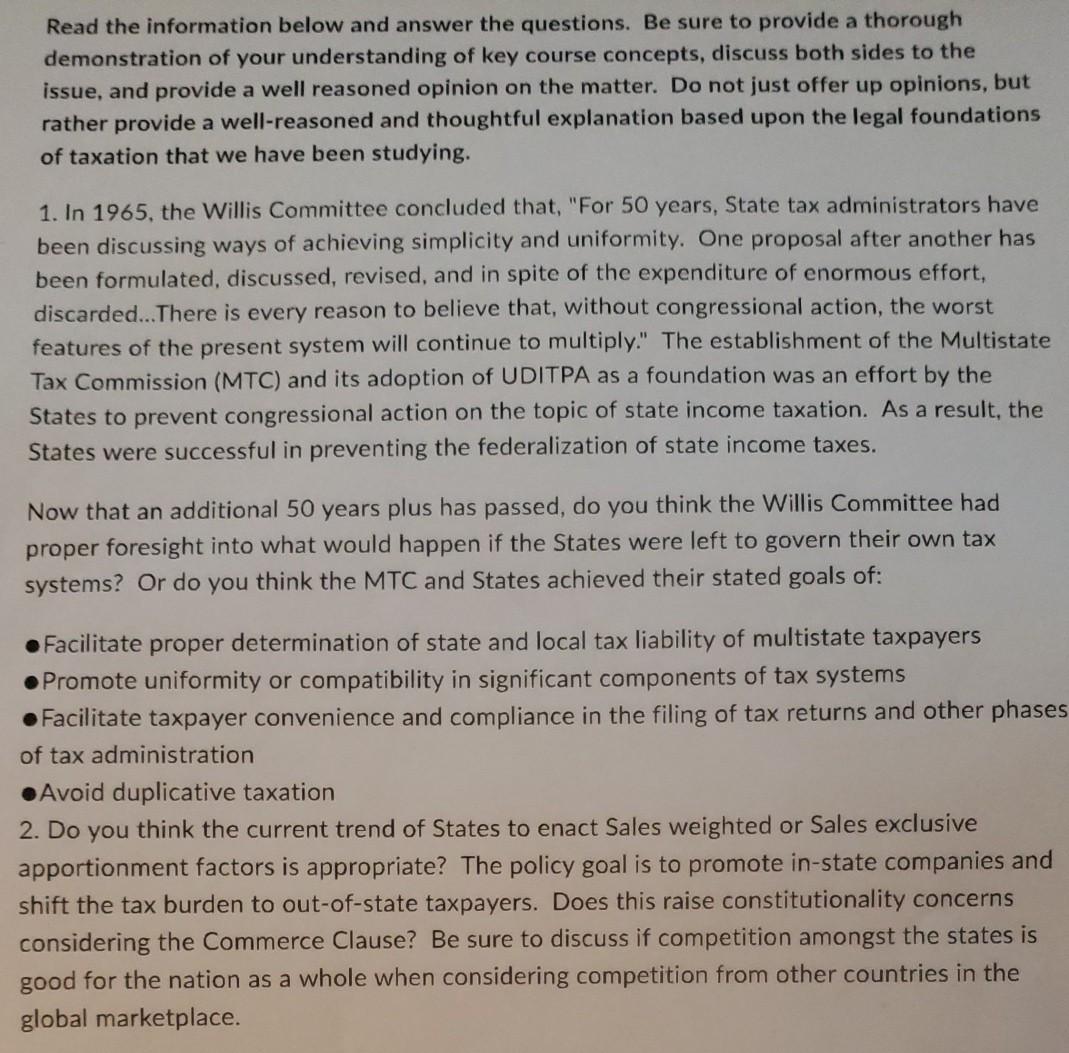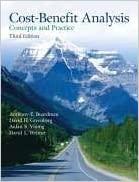Answered step by step
Verified Expert Solution
Question
1 Approved Answer
Read the information below and answer the questions. Be sure to provide a thorough demonstration of your understanding of key course concepts, discuss both sides

Read the information below and answer the questions. Be sure to provide a thorough demonstration of your understanding of key course concepts, discuss both sides to the issue, and provide a well reasoned opinion on the matter. Do not just offer up opinions, but rather provide a well-reasoned and thoughtful explanation based upon the legal foundations of taxation that we have been studying. 1. In 1965, the Willis Committee concluded that, "For 50 years, State tax administrators have been discussing ways of achieving simplicity and uniformity. One proposal after another has been formulated, discussed, revised, and in spite of the expenditure of enormous effort, discarded...There is every reason to believe that, without congressional action, the worst features of the present system will continue to multiply." The establishment of the Multistate Tax Commission (MTC) and its adoption of UDITPA as a foundation was an effort by the States to prevent congressional action on the topic of state income taxation. As a result, the States were successful in preventing the federalization of state income taxes. Now that an additional 50 years plus has passed, do you think the Willis Committee had proper foresight into what would happen if the States were left to govern their own tax systems? Or do you think the TC and States achieved their stated goals of: Facilitate proper determination of state and local tax liability of multistate taxpayers Promote uniformity or compatibility in significant components of tax systems Facilitate taxpayer convenience and compliance in the filing of tax returns and other phases of tax administration .Avoid duplicative taxation 2. Do you think the current trend of States to enact Sales weighted or Sales exclusive apportionment factors is appropriate? The policy goal is to promote in-state companies and shift the tax burden to out-of-state taxpayers. Does this raise constitutionality concerns considering the Commerce Clause? Be sure to discuss if competition amongst the states is good for the nation as a whole when considering competition from other countries in the global marketplace. Read the information below and answer the questions. Be sure to provide a thorough demonstration of your understanding of key course concepts, discuss both sides to the issue, and provide a well reasoned opinion on the matter. Do not just offer up opinions, but rather provide a well-reasoned and thoughtful explanation based upon the legal foundations of taxation that we have been studying. 1. In 1965, the Willis Committee concluded that, "For 50 years, State tax administrators have been discussing ways of achieving simplicity and uniformity. One proposal after another has been formulated, discussed, revised, and in spite of the expenditure of enormous effort, discarded...There is every reason to believe that, without congressional action, the worst features of the present system will continue to multiply." The establishment of the Multistate Tax Commission (MTC) and its adoption of UDITPA as a foundation was an effort by the States to prevent congressional action on the topic of state income taxation. As a result, the States were successful in preventing the federalization of state income taxes. Now that an additional 50 years plus has passed, do you think the Willis Committee had proper foresight into what would happen if the States were left to govern their own tax systems? Or do you think the TC and States achieved their stated goals of: Facilitate proper determination of state and local tax liability of multistate taxpayers Promote uniformity or compatibility in significant components of tax systems Facilitate taxpayer convenience and compliance in the filing of tax returns and other phases of tax administration .Avoid duplicative taxation 2. Do you think the current trend of States to enact Sales weighted or Sales exclusive apportionment factors is appropriate? The policy goal is to promote in-state companies and shift the tax burden to out-of-state taxpayers. Does this raise constitutionality concerns considering the Commerce Clause? Be sure to discuss if competition amongst the states is good for the nation as a whole when considering competition from other countries in the global marketplace
Step by Step Solution
There are 3 Steps involved in it
Step: 1

Get Instant Access to Expert-Tailored Solutions
See step-by-step solutions with expert insights and AI powered tools for academic success
Step: 2

Step: 3

Ace Your Homework with AI
Get the answers you need in no time with our AI-driven, step-by-step assistance
Get Started


